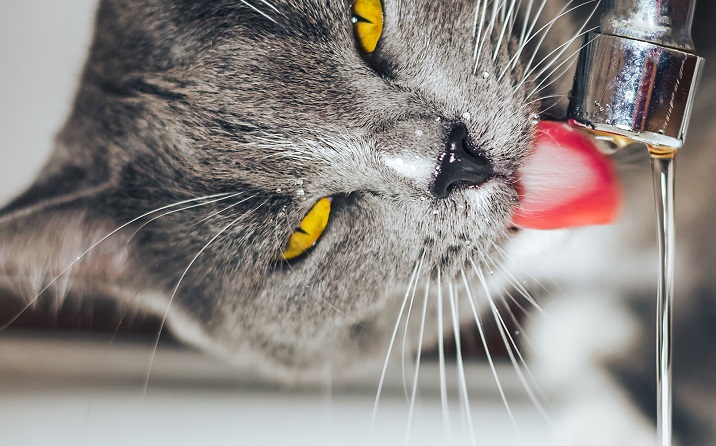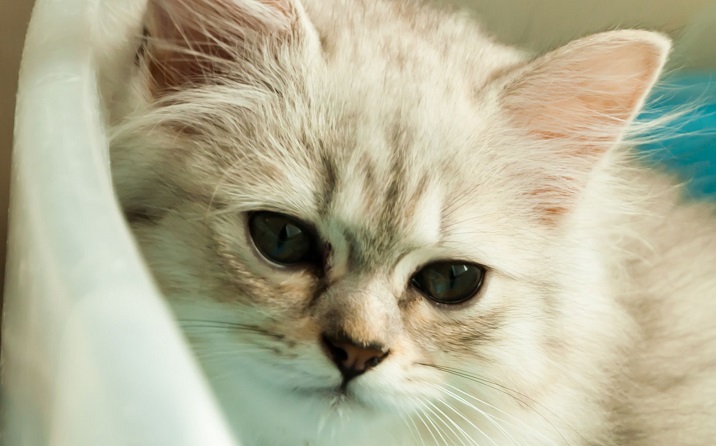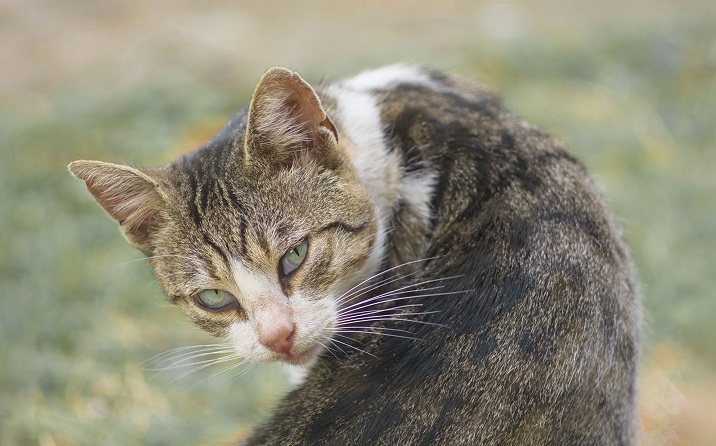Urinary diseases and your cat
The urinary tract consists of the kidneys, ureters, bladder, and urethra. The development of urinary tract disease in cats is common. However, males have a greater risk of urinary disorders becoming life-threatening if not treated early.
tract disorders can involve one or more of the signs listed below. It is important to become familiar with the warning signs so your cat can commence treatment as early as possible. Some of the warning signs listed below can be a medical emergency – please contact your Greencross Vets immediately should your cat show these signs.
Warning signs to watch out for:
- Difficulty and pain when urinating
- Meowing or vocalisation whilst trying to urinate
- Frequent attempts to urinate
- Urinating small amounts or nothing at all
- Blood in the urine
- Urinating outside the litter box, whether next to the litter box or in another room, shower, beds, shoes, etc.
- Hard or firm tummy
- Excessive grooming of the genital area
- Lethargy
- Loss of appetite
- Inflammation around the external genitalia.
If your cat is displaying any of these symptoms, please do not hesitate to book an appointment at your local Greencross Vets or contact your local emergency hospital. Acting quickly could save your cat’s life!
Cats most at risk are those that are:
- Neutered males
- Middle-aged
- Overweight
- Lack exercise
- Have little or no outside access
- Eat a predominantly dry diet
- Live in a multi-cat household
- Live in a stressful environment
- Have related diseases, including diabetes and liver disease
- Have previously suffered from a urinary disease.
Specific urinary disorders
Feline Lower Urinary Tract Disease
Feline lower urinary tract disease (FLUTD) is not a single disease but a term used to refer to a number of conditions that affect the urethra and bladder of cats. While certain environmental and lifestyle factors can increase the likelihood, FLUTD can affect all cats, especially those that have become stressed. FLUTD is one of the more common reasons cats are brought to the clinic.
In the majority of cats with signs of lower urinary tract disease (FLUTD), the exact cause is unknown. Some more common causes include:
- Bladder stones
- Kidney problems
- Urinary tract infections.
Bladder Stones (Urinary Calculi) can be a component of FLUTD
Like humans, cats can develop crystals and stones in their bladder and urethra. These are usually caused by an excess of certain minerals in their diet. They may be a single large stone or multiple small stones similar in size to sand or gravel.
Risk factors associated with FLUTD
A multimodal approach is recommended for the management of feline urinary tract disease. The approach includes identifying and controlling underlying medical disorders, modifications to the cat’s home environment, addressing behaviour issues, and dietary management. Feeding prescription or specially formulated food is a key element of the complete approach to the long-term management of most common conditions of FLUTD in cats.
Some common risk factors include:
- Food – high levels of certain minerals in food can increase the chance of crystal formation. Food also influences the acidity/alkalinity of urine, which can lead to crystal formation. High urine pH can contribute to the production of struvite stones, while low urine pH can produce calcium oxalate stones.
- Behaviour – lack of exercise, confinement indoors, reduced water intake, and even dirty litter trays may cause your cat to urinate less often, which can lead to the development of FLUTD.
- Body condition – excess weight predisposes cats to FLUTD.
- Gender – urinary obstruction is more common in younger, male neutered cats.
Feeding recommendations
Cats suffering from struvite stones benefit from a food low in magnesium and phosphorus, which produces a normal acid urine pH. Cats suffering from calcium oxalate stones benefit from foods with optimal levels of sodium, magnesium, phosphorus and added potassium citrate, which helps produce a more alkaline urine pH.
Home care
If your cat is diagnosed with FLUTD, there are a few steps that can assist in managing their condition at home:
- Provide plenty of clean, fresh water at all times. Feeding canned food can be helpful in increasing water intake.
- Feed only the food recommended by your veterinarian.
- Do not give any extra treats, food scraps or vitamin supplements.
- Encourage exercise.
- Keep the litter pan clean and fresh.
- Once a cat has suffered from FLUTD, a food specifically designed to limit crystal formation should be fed to reduce the risk of recurrence.
- Periodic urinalyses are important in the management of this disease.
Chronic Kidney Disease
Kidney disease is the most common medical disease affecting cats. Around 70% of the kidneys need to be affected before any obvious signs are seen, however, as the damage to the kidneys is generally irreversible, the earlier this condition is treated, the better. If you notice signs of abnormal toileting, increased thirst, poor coat or weight loss in your cat, contact your local Greencross Vets team today.
Vet diagnosis and treatment
In order to provide the proper treatment, your vet will need to diagnose the underlying reason for the urinary tract disease. Based on the symptoms, your vet will need to perform any combination of the following:
- Physical examination – a thorough physical examination from nose to tail and everything in between.
- Urinalysis – this involves collecting a sample of your cat’s urine to assess the pH, urine concentration, and whether there is any blood, protein, glucose, crystals, inflammatory cells or bacteria.
- Blood test – diagnostic tests like chemistry panels and complete blood count will be performed to determine any abnormalities.
- X-rays – a scan of the urinary tract can identify if there are any stones present. Cats will need sedation for this procedure.
- Ultrasound – your vet may examine your cat’s bladder, kidney and urinary tract for stones and other abnormalities using an ultrasound.
- Biopsy – a tissue sample of the kidneys, bladder wall or urinary tract may be taken, especially if it is likely the urinary disease is being caused by a tumour.
If your cat displays any abnormal symptoms, contact your local Greencross Vets for a checkup.

 Greencross Vets
Greencross Vets 








